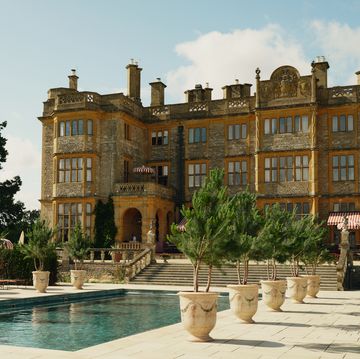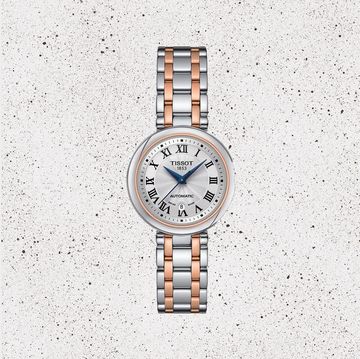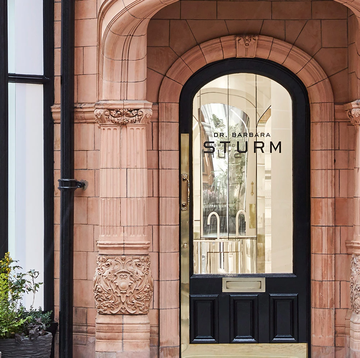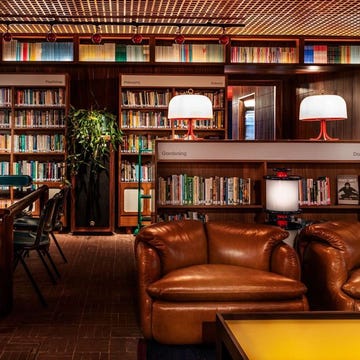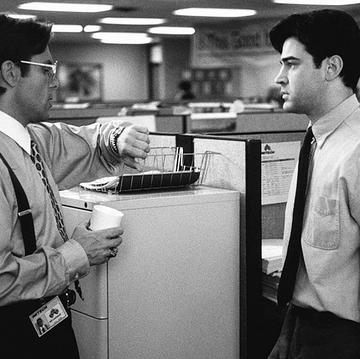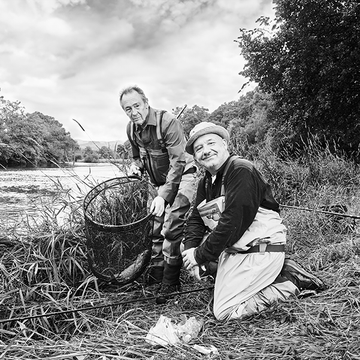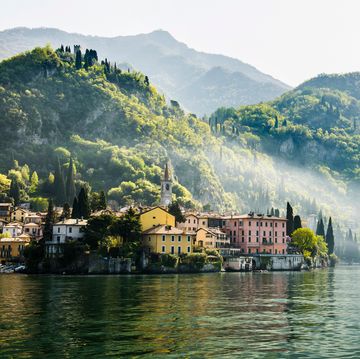At our monthly lunch, the editor of our noble and upstanding organ looked at me wearily across the table — wearily, and a little cravenly. “So,” he said, “how did it go?”
I looked back at him, and, trying not to sound too sprightly, replied: “Pretty good — by which I mean, I’ll be a fortnight clean come Thursday.”
He shook his head sadly, and there was an almost imperceptible wobble in his cheeks — the first faint stirrings, one suspects, of the jowls-to-come.
“Funny,” he said, “a few years ago, all my writers were asking to be sent abseiling down the north face of the Eiger, or on a drive across the Sahara, or hunting polar bears in Spitsbergen. Now, the only thing any of you want is to be confined somewhere soft and safe, while being deprived of whatever vice it is that afflicts you. How the mighty are fallen!”
I could’ve made those incipient jowls twitch a bit more, by observing that we hadn’t exactly fallen — simply aged, along with you, dear readers. And moreover, I knew why Alex was looking so down in the mouth: he suffers from exactly the same vice as me, a chronic and deeply ingrained addiction to nicotine in all its myriad and ramifying forms. Regular readers of this magazine have probably absorbed a fair amount of my writing about my nicotine habit over the years; for some, this may have been a gateway to my writing about all my other bad habits, and for that I apologise. I’m only too aware of how injurious to health such writing can be, and moreover that it’s far from being a victimless crime — there’s such a thing as secondary reading...
But bear with me, please, for after 44 years of puffing, chewing, sucking and snorting, it really is over for me. Why, if La Divina Nicotina were to appear before me right now, arrayed in her silkiest and most intoxicatingly revealing apparel — the smoky tresses of her own sensual combustion — I would simply wave her away with these air-freshening words: “I do not know you.”
The Italian writer Italo Svevo, encouraged by no less a smoker than James Joyce, published a novel in 1923 called Zeno’s Conscience. Its eponymous antihero is a furious nicotine addict, one who never manages to kick the habit. Zeno’s rationale is nothing of the sort: “Who knows,” he contends, “whether, if I had given up smoking, I should really have become the strong, perfect man I imagined? Perhaps it was this very doubt that bound me to my vice, because life is so much pleasanter if one is able to believe in one’s own latent greatness.”
As we parted after lunch, Alex wished me well in my continuing abstinence — but I knew he didn’t really mean it: he wanted my greatness to remain as latent as his own! Yes, it doesn’t matter if it’s heroin, booze or fags, hardcore addicts hate it when one of their number gets clean. Whereas the rest of the world saw a strong and perfect man striding along Brewer Street, Alex saw a rat, swimming away from his smoky, sinking ship.
But how, I hear you, gentle reader, coo… How, Will, did you exit the motorway of excess and coast to a gentle halt in the escape lane of, if not wisdom, at any rate moderate sanity? (I mean to say, who the ruddy fuck goes on smoking into his sixth decade? I once asked John McVicar, the legendary hard man and at one time “Britain’s Most Wanted Man” if he’d ever smoked, because it seemed somehow inevitable that a character like him, who belonged to that Sixties black-and-white-film-and-grey-and-blue-smoke London, the one featuring the Krays and Christine Keeler — of whom more later — would’ve done so. And he fixed me with a gimlet eye, and exhaled, “’Course I did — but as soon as I read Richard Doll’s report connecting it to cancer I gave it up… That would’ve been around 1960.”) The answer is, hurting, raw, stressed and, habit-shackled reader, lashed to the monstrously mechanical go-round of your own addictions: luxury! Yes, unashamed, five-star, no-holds-barred, plumped-up and dusted down, impeccably served and grandiosely set luxury — the proverbial silver spoon, resting on a velvet cushion floating in a pool of warm custard, or possibly vichyssoise.
Thing is: I’ve done time (all right, granted only a few hours, but the Old Bill did take away my belt and shoelaces), and I’ve done rehab, but neither of these absolute prohibitions availed me any more than the repeated attempts I’ve made to curb this or that addiction, attempts which have invariably ended with the substitution of one pernicious habit for another. (See Esquire passim for a haunting description of how my vaping got so out of control that I’d regularly awaken with the witch’s tit of the vaporiser clenched between my avid jaws.)
And when I say I’ve “done rehab’’, I mean tough rehab, not some touchy-feely desert drum circle, because back in the day it was believed that in order to drive out the parasitic devil of addiction, you had to kill its pusillanimous host: the human ego. I remember my counsellor saying to me: “They call us brainwashers here, Will, but we have to wash your brain, ’cos it’s dirty.” My dirty brain was served up to the pummelling of group therapy, whereby my fellow addicts — in a bizarre recreation of the “criticism sessions” that typified Mao’s Cultural Revolution — humiliated me back into some semblance of cleanliness.
Mens sana in corpore sano and all that Latin jazz. I managed to stay sano for two or three years (this was in the late Eighties), but I can’t help feeling that the setting for my rehabilitation wasn’t altogether conducive to the right mens sana. I’m talking Tupperware and plastic stacking chairs; laminate floors and Polystyrene ceilings — I’m talking a world of self-denial — including denying that this Self is an impossibly grandiose fellow, who demands the sort of Wagnerian pomp and bejewelled circumstance favoured by Mad King Ludwig II of Bavaria if his squalid little habits are to be curtailed.
Enter cliveden house: a stupendously large and ornate country pile dumped on the Thames braes to the west of London. At various times the abode of dukes, duennas, and the odd Prince of Wales, there have been three houses on the site, the third and present incumbent being a humungous mash-up of the Roman Cinquecento and the Palladian, which was designed by Charles Barry (of Houses of Parliament fame) and completed in 1852.
Cliveden achieved its greatest notoriety during the last century, when its then chatelaine, Nancy Astor, presided over a racy Thirties political salon known as “the Cliveden Set”. She herself was Britain’s first woman MP, and her personal style ran to divided skirts and motorcycles; our kind of esquire, one might say. Guests included everyone who was anyone, from Charlie Chaplin to Winston Churchill, but it was in the early Sixties that the gaff reached a sort of crescendo of posh naughtiness.
At that time, the tenant of Spring Cottage on the Cliveden Estate was one Stephen Ward, an osteopath and socialite, whose kicks consisted in being a sort of amateur procurer-cum-pimp to the great and the not-so-good. I’m not going to run over all the ins and outs of the Profumo affair here: if you don’t know how the British establishment was finally dragged down into the tabloid mosh pit, where it’s remained, getting a sound kicking to this day, then you’re no kind of an esquire at all.
Suffice to say, Ward, the then 19-year-old Christine Keeler (she of the famous nude reversed shot on wooden stacking chair), and her friend Mandy Rice-Davies (aged 16), were all pretty heavy smokers — certainly if Scandal, the 1989 film about the affair is to be believed. It could be that dear old John Hurt was typecast for the role of Ward — which is not to suggest that the late, great actor was a pander — but boy could he puff! I remember seeing him regularly, during my underage drinking years in the Seventies, propping up the bar in The Flask in Hampstead village, knocking down the sauce, and always with un mégot poised on his bottom lip.
Anyway, the Astors rather played down the whole scandalous association during their suzerainty, and, of course, the entire vast establishment is now emphatically smoke-free, although DVDs of the film are on sale at reception in the house, should anyone need reminding of that innocent era when the only scandalous thing about a middle-aged defence minister shagging a 19-year-old girl was that she also happened to be shagging a Soviet spook.
Anyway, I settled on Cliveden as the perfect setting within which to undergo the rigours of withdrawing from my pernicious 44-year dependency on nicotine, because I wanted — among many other things — to finally join the establishment: following Italo Svevo’s Zeno, this was the sort of strong, perfect man I wished to be: one with a five-piece set of Samsonite hand-tooled leather luggage, and a brand new Land Rover Discovery to load them into. The sort of strong, perfect — and let’s face it, rich — man, who cheerfully regards this astonishing establishment (motto: “Nothing ordinary ever happened here, nor could it”) as a species of airport hotel, given its proximity to Heathrow.
Yes! After years of tatty misery, making do with bide-a-wee-style bed and breakfasts where obese landladies serve rancid fry-ups and the sheets are so synthetic they cling to you like shrouds, I wanted to experience Prince Charles levels of personal indulgence. Harold Nicolson, the celebrated diarist and husband to gardening geezer-girl Vita Sackville-West, said of Cliveden: “To live here would be like living on the stage of the Scala Theatre in Milan.” Well, so be it! I thought, the night before I set out: bring on the overweight prima donnas, and may they crush me to death with their opulent cavorting!
My rehab companion and I entrained from Paddington to Maidenhead. I’d last visited the constituency of our Virgin Queen, Mrs May, to appear on an episode of the BBC’s Question Time. One of my fellow panellists had been Nigel Farage, and I’d had the great pleasure of calling him, on live television, “a grubby little opportunist, riding on the coattails of history”. Of course, Farage was way too cool to rise to this, and simply donated his habitual shit-eating grin to the camera, but it remains one of my finest put-downs; why, I’d stubbed the man out as if he were one of the filter-tips he himself perennially puffs upon.
Yes! As my taxi caromed along the lanes, and swung in through the gates of Cliveden, I saw a Churchillian future ahead of me, one in which such bon mots fell as casually from my lips as cigarettes had once been raised to them. The Farage stubbing-out had been a sort of sympathetic magic, a symbolic act presaging the final extinguishing of the real thing.
And as my rehab companion and I entered the Grand Hall, to be welcomed by a beaming and burly chap called Michael Chaloner, who would be our Virgil throughout our stay in the underworld of the über-rich, it struck me that it was already rising 15 hours since I’d last ingested any nicotine, and that I felt perfectly all right: a little nervy, granted, and rather emotionally… labile — but I’d by no means turned into the slavering homicidal maniac I’d anticipated.
Was this, I wondered, because I was looking forward to taking up residence in the Shrewsbury Suite? A set of rooms on the first floor of the west wing that are so elegantly appointed, with such magnificent views out over the surrounding country, that — get this — they have their own guestbook. Actually, I wouldn’t be surprised if every single toilet at Cliveden had its own guestbook because this is an establishment that’s constantly being memorialised. Hell, since it’s actually owned by the National Trust, it’s already a public monument of sorts. Sitting in the woody vastness of the library, either sipping our cocktails or our tea, my companion and I would stare out over the truly massive parterre, and see there the ghastly hoi polloi, clad in brightly coloured garments of nylon and Gore-Tex, dragging their equally vile offspring between the neatly clipped hedges. (For those of you too lower class to know what a parterre is, I have no wise, defining words — only a soupçon of pity.)
Bags deposited by the four-poster in the Shrewsbury Suite, we adjourned first to the Astor Grill for a little light luncheon, and then to the spa, where my companion received some sort of mysterious “treatment”, while I availed myself of first the sauna, and then the steam room, intent on sweating out the last fugitive molecules of nicotinic acid. The grill room was fairly sparsely tenanted, the spa still emptier. As I dripped, I found it hard not to think of the scene in Thunderball, in which Sean Connery's James Bond is lashed to a stretching machine at a health farm by an agent of Spectre who’s coincidentally taking a cure. Bond is almost torn in two by the errant gym equipment, but then that’s what you get if you waste taxpayers’ money on such an establishment. If Bond had addressed his issues at Cliveden instead, he’d have avoided all assassination attempts, although he’d probably have found it difficult to resist the extravagantly dry Martinis.
I’ve written in these pages before about my positive aversion to luxury. Not, you appreciate, that I don’t like Egyptian cotton sheets, haute cuisine and impeccably mannered service as much as the next spoilt dick, but just because luxury, no matter how opulent, is never in my experience luxurious enough: there’s always some dry little pea lodged deep inside the mattress, that nonetheless renders this little princess black and blue by morning. Perhaps it was because my trip to Cliveden was so goal-oriented that I didn’t experience the pea effect; this meant I compared the establishment not with the Sunset Tower in Los Angeles or the Hotel Arts in Barcelona, but with Broadway Lodge in Weston-super-Mare.
As I’ve already remarked, I’ve done conventional rehab and from the luxury point of view it sucks dog shit, what with its tough love, and having to grout the splashback in the shower stall before you can take a shower. It sucks from the service angle as well, what with all that rigorous honesty; I was fed up with people telling me I was a self-deceiving liar. Instead, I wanted to bask in my self-deception, while people were paid to say how very nice it was to see me, their manner strongly implying that I was one of the most estimable fellows ever to be born.
This is the sort of feedback the staff at Cliveden positively excel at and we were borne on a pink cloud of approbation from spa to suite, to the library for cocktails, and finally to the beautifully appointed André Garrett Restaurant for dinner. I’m not going to itemise all the yummy dishes we ate anymore than I’m going to exhaustively describe the decor — that’s what websites are for. What I can tell you, is that the food was of such piquancy, and the service of such subtle obsequiousness, that when the long meal ended — let alone before — I didn’t feel the slightest need of my habitual, smoky digestif.
Yes, yes, I appreciate that providing Cliveden-style rehab for all of Britain’s smokers, drinkers, dragon-chasers and crackheads would place a considerable burden on the taxpayer but I ask you, aren’t the costs of our noxious addictions already beggaring the nation? Besides, I was able to kick La Divina Nicotina into touch with a mere two nights at Cliveden, whereas the minimum stay in primary care at the likes of The Priory takes six to eight weeks and costs north of 20 grand!
True, Cliveden doesn’t have any specialist staff on hand to deal with the horrors of withdrawal, but it does have Mr Chaloner, who, on the second afternoon of our stay, took us for a ramble through the extraordinary house, stopping here and there to remark on some ancient peccadillo of its previous owners, whether it be Lady Astor’s son’s penchant for members of his own sex, or the back passages of the great house itself which vermiculate its thick walls, such that a staff member can pop up more or less anywhere, then disappear just as readily. The aim was, of course, to keep downstairs downstairs, even when it was — so to speak — upstairs. Now, if you’d have told me I’d be undertaking a tour of a National Trust property less than 48 hours after quitting the gaspers, I’d have asked you for a fag, so shocked would I have been. If you’d have told me I’d actually be enjoying it, I’d have lit it. True, Chaloner was an exemplary guide, witty and just a little irreverent: I suspect it’s at his instigation that the Lego bust of Churchill was placed behind the reception desk; a little reminder, perhaps, that even the most exaltedly aristocratic among us can still be perfectly realistically depicted in… plastic.
But I spent most of that day in a sort of pinkish haze anyway. The previous evening, surfeited with fine dining, we’d repaired to the Shrewsbury Suite, choosing the route which took us outdoors, so I could feel the cool night air in my revivifying air-sacs. The last thing I’d noticed before we went in again, was the ornate, 100ft-high clock tower that looms over the stable block of the house. With its half open staircase and four, golden clock faces, it’s an arresting sight, but more striking still is the statue that surmounts it: a reproduction, I later learned, of the one that tops off the July Column in the Place de la Bastille, Paris. This winged male figure seems a little too revolutionary for such a context, especially given it’s an allegory: the chain in its left hand representing the struck-off fetters of slavery, the torch in its right the very flame of liberty itself.
Still, coating the thing in two layers of 23-carat gold leaf helps to bling Le Genié de la Liberté up a little and besides, since this latest iteration of the sculpture (which keeps getting hit by reactionary lightning) has only been in situ at Cliveden since 2012, I decided it was entirely aimed at… moi. After all, had I not struck off the fetters of my nicotine addiction, and had my large collection of disposable butane lighters not been repurposed into a veritable beacon celebrating my freedom?
And so I had slept deep that night. At least until the small hours which was when, in the recent past, I’d have awakened to have a cigarette. Why? Because as anyone with a scintilla of medical knowledge can tell you: smoking at night doesn’t count. But in the plumped-up darkness of the Shrewsbury, as tightly wrapped up in the four-poster bed as a hand-rolled Havana cigar, I came to consciousness in the midst of a full-blown panic attack: gasping for air, and spluttering to my long-suffering companion: “I’m dead! I’m dead!” It was the unaccustomed darkness of the suite, I think — only the very rich can bask in such Stygian interiors nowadays, the rest of us have to suffer light pollution infiltrating our cheap drapes — this, and yes, I had died that night.
By which I mean that the smoking, chewing, snorting, vaping I died that night, the I who believed nicotine had anything to offer him beyond blood, sweat and the misery of an early grave; the I that had posed with a cigarette in his lips, imagining himself some sort of suburban fucking Steve McQueen, ever since he was tall enough to put his 26p on the counter and ask for 20 Players No 6. Yes! I arose the following morning the strong and perfect man that Alex Bilmes so envies.
And remained that man for the rest of my stay at Cliveden, during which we had a t’ai chi session with a soon to be 80-year-old woman called Judy who looked 20 years younger than that, while moving with the coiled strength and suppleness usually attributed to James Bond. Unlike 007, though, I suspect Judy had never so much as seen a handmade Balkan Mixture cigarette, let alone smoked pushing-60 a day.
It’s customary when you leave rehab to undergo a simple ceremony during which your peers wish you well, and offer their continuing strength and support, while you, welling up with tears, tell them how much you love them, and that you’re a changed man. Well, consider this article to have been that ceremony, and remember, dear, dear readers, don’t be suckered in by any talk of spartan fitness regimes, or harsh psychological cleansing, you heard it here first: luxury is indeed the new rehab.
Will Self stayed at Cliveden House hotel, Berkshire, England SL6



